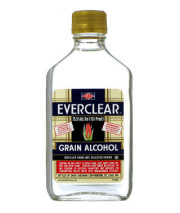You toss and turn in bed, sit up to look at the alarm clock and it’s one a.m. You do this until the alarm clock finally goes off and spend the rest of the day feeling groggy, tired, grumpy and have a hard time concentrating.
If this is a typical night for you, you aren’t alone. Many people suffer with insomnia. While the average adult needs between seven and eight hours of sleep a night, you may be surprised to learn that only 35% of American adults consistently get this amount of sleep.
Take a look at these statistics from Statisticbrain.com :
| Sleep Disorder Statistics | Data |
| Number of people who suffer from insomnia | 70 Million |
| Number of people who suffer from sleep apnea | 18 Million |
| Number of people who suffer from narcolepsy | 200,000 |
| Number of people who suffer from restless leg syndrome | 20 Million |
| Sleep Deprivation Statistics | Data |
| Number of people in the U.S. who have a chronic sleep disorder | 40 Million |
| Estimated cost to U.S. employers in lost productivity due to sleep loss issues | $18 Billion |
| Percent of people who suffer from sleep apnea | 5 % |
| Percent of American adults experience a sleep problem a few nights per week | 62 % |
| Percent of all adults have insomnia in the course of any year | 30 % |
What is insomnia and why aren’t we sleeping?
Insomnia is defined as having a difficult time falling asleep or maintaining sleep three or more nights a week. If you have chronic insomnia it’s always important to look at the whole picture, to determine the root cause. A few causes of sleep disruption include:
Medication-Some medications (prescription and OTC) can cause sleep disruption, surprisingly one of the side effects of sleeping pills can be insomnia.
Unhealthy Food Choices-If your diet lacks variety, you may be missing out on important vitamins and minerals that help to create calming neurotransmitters to help us sleep. Consuming processed foods means you are also missing out on the beneficial ingredients of fresh foods that are so critical to our overall health.
Inconsistent Sleep Schedule-While you may be tempted to sleep in on your days off, you confuse the body’s natural sleep rhythm, with an irregular sleep pattern.
Alcohol– Some people like to have a drink before bed to help relax. You are actually more likely to get up in the middle of the night, as drinking alcohol has been shown to decrease the total amount of time spent in REM sleep and it actually increases sleep disruption during the second stage of sleep.
Stress/Worry– If you are stressed with your job or worried about your kids, you may have an overactive mind that makes it difficult for you to fall asleep or stay asleep.
So how much sleep do we need?
| Average Hours of Sleep Needed by Age | Hours Needed |
| Newborns | 14-17 hours |
| Infants | 12-15 hours |
| Toddlers | 11-14 hours |
| Preschoolers | 10-13 hours |
| School –age children | 9-11 hours |
| Teenagers | 8-10 hours |
| Young adults | 7-9 hours |
| Adults | 7-8 hours |
Sleeping Statistics from National Sleep Foundation
Why sleep is important
If you look at the first chart you’ll see that a large number of the population is challenged to get a good night’s sleep. We all need to get a good night’s sleep every night. When we sleep our bodies use this time for rest, healing, cleansing and rejuvenation.
Not sleeping at night means more than feeling grumpy the next day. Sleep deprivation is linked to a number of problems such as such as cardiovascular disease, diabetes, greater risk of hypertension or high blood pressure, Sjögren’s syndrome, obesity, IBD (Irritable Bowel Syndrome) inability to concentrate and car accidents .
Hints for creating a better night’s sleep
Remove electronic devices from your bedroom
Keep a consistent wake and sleep schedule
Keep a comfortable bedroom temperature
Avoid sleeping in on your days off
Limit nap times
Avoid TV and computers 1-2 hours before bedtime
Sleep in a dark room
Avoid caffeine & nicotine
Avoid sugar 2-3 hours before bedtime
Avoid liquor, especially before bed
Cut down on fluids 1-2 hours before bed
Risks of prescription sleep aids and OTC sleep aids
Some prescription medications can trigger complex sleep related behaviors, such as sleep walking, sleep eating, getting dressed and going for a walk or driving a car. Most individuals won’t recall these events. They are usually related to sedative-hypnotic pills which are given to someone to help them fall asleep and stay asleep.
Some individuals can also experience allergic reactions such as face swelling or anaphylaxis. Depending on what type of sleeping pills you take, you may experience side effects such as dizziness, lightheadedness, headaches, memory problems or gastrointestinal problems.
Food/drinks to help you sleep
Almond milk- Almonds are high in tryptophan as well as another nutrient important to sleep, magnesium, and thus can be beneficial in improving the quality of your sleep.
Banana –Bananas are loaded with magnesium and potassium, both of which help your muscles to relax and help to give you a peaceful night’s sleep.
Carob– Instead of hot cocoa, you might consider trying carob. Carob has a high level of B vitamins which is helpful in regulating the sleep cycles of your body, as well as boosting natural levels of serotonin.
Chamomile tea-This is a classic sleep aid. It is widely known for its calming, relaxing effect and enjoyable taste. Individuals who are sensitive to ragweed or other members of the Compositae family should avoid chamomile as they are more prone to experience or develop contact allergies to chamomile.
Cherry juice-Recent studies have shown that drinking cherry juice in the morning and another in the evening can help you get an extra hour of sleep.
Chia seed drinks– Chia seeds are beneficial due to their tryptophan content which enhances sleep. Chia seeds are also rich in Omega 3 fatty acids, which may also be helpful in promoting sleep.
Coconut water-This drink is high in magnesium, and full of electrolytes. It’s a great choice for rehydrating, just be sure you’re buying a clean version of coconut water not one with sugar.
Decaffeinated green tea-Green tea contains theanine, which is a known stress reducer and sleep improver. Studies on the health benefits of drinking green tea, are also showing exciting results in cancer research.
Kiwi- Researchers in this study found that eating kiwi on a daily basis was linked to substantial improvements in both sleep quality and sleep quantity.
Lemon balm-Lemon balm is a great stress reducer. This herb is part of the mint family and is known to help fight insomnia and promote sleep.
Milk-In this study of older adults, individuals with difficulty falling asleep improved by consuming milk or cheese.
Valerian tea–Valerian is well known for being a strong sedative.
Walnuts-Melatonin is present in walnuts and eating them can increase blood melatonin concentration, assisting in your ability to sleep better.
Before starting any natural remedies you may wish to consult your health care practitioner, as chronic insomnia can be a symptom of other conditions.








